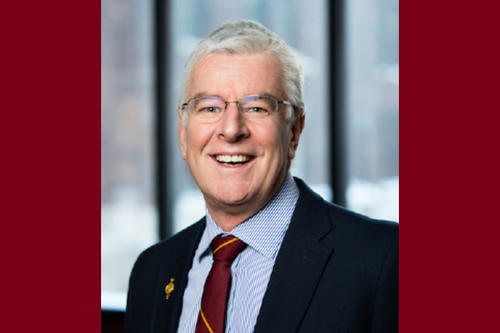
September is National Prostate Cancer Awareness Month. The American Cancer Society estimates there will be about 1,970 new cases of prostate cancer in Minnesota in 2019. Other than skin cancer, prostate cancer is the most common cancer in American men.
Simon Rosser, a prostate cancer researcher with the University of Minnesota, answers questions on the symptoms, treatment and screening for prostate cancer.
Q: What is prostate cancer?
Dr. Rosser: Prostate cancer is a form of cancer that begins in the cells of the prostate. The prostate is a walnut sized gland located between the penis and the rectum in those born biologically male.
Q: Which men are more at risk for prostate cancer?
Dr. Rosser: Older men, men with a family history of prostate cancer, and African American men are at greater risk of diagnosis and/or worse outcomes.
Q: What are the symptoms of prostate cancer and how is it detected?
Dr. Rosser: Prostate cancer typically develops without symptoms, which is why it needs to be detected through a blood test (the Prostate Specific Antigen or PSA test) and by a doctor feeling for any abnormalities during a digital rectal exam. Two common prostate problems should not be confused with prostate cancer. As we age, our prostates typically get larger which can lead to problems urinating. This is called benign prostatic hyperplasia or BPH. The second problem, prostatitis, refers to when the prostate gets infected or inflamed.
Q: What are the treatment options for prostate cancer?
Dr. Rosser: Fortunately, prostate cancer has an excellent (over 99%) survival rate provided it is treated early. The initial diagnosis can be scary and requires a biopsy which can be uncomfortable. Don’t panic. Most prostate cancer is slow growing so in many cases you can go at your own pace. Treatment options range from active surveillance — which involves blood tests to monitor PSA and annual biopsies — to surgery to remove the prostate, and/or radiation treatment to kill the cancer.
Q: What are you doing to advance prostate cancer research?
Dr. Rosser: In the Restore study, we are conducting the first NIH-funded trial for prostate cancer patients who are gay, bisexual or other men who have sex with men. Because sexual minority men have different outcomes after treatment then heterosexual patients, we are testing whether a comprehensive rehabilitation program to treat both the sexual and urinary effects of treatment works to restore their functioning. If it works, we will have a new treatment program for sexual minority men and possibly a new approach to rehabilitation for all prostate cancer patients. It’s very exciting.
Dr. Simon Rosser is a professor in the University of Minnesota School of Public Health and Masonic Cancer Center member. His areas of expertise include prostate cancer, HIV/AIDS prevention, sexual minority health and sexual rehabilitation.
About “Talking...with U of M”
“Talking...with U of M” is a resource whereby University of Minnesota faculty answer questions on current and other topics of general interest. Feel free to republish this content. If would like to schedule an interview with the faculty member or have topics you’d like the University of Minnesota to explore for future “Talking...with U of M,” please contact University Public Relations at [email protected].
- Categories:
- Health




